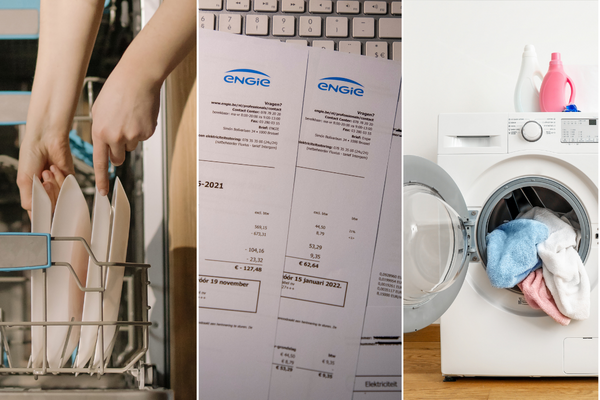Households in Great Britain that have a smart meter installed will soon receive money to turn off electricity-hungry appliances at peak times to reduce the risk of blackouts during winter.
From washing machines to dishwashers and tumble dryers, turning off these appliances between 17:00 and 20:00 could see millions of households in England, Scotland and Wales receive up to €7 per kilowatt hour (kWh) that they save under plans devised by the National Grid ESO (electricity system operator), according to reports from the Sunday Times.
"We are developing a new service that will be available to consumers during the coming winter and we will provide more information soon," a spokesperson for the network operator told the paper. The pilot scheme could be launched as soon as October and could see households save hundreds of pounds a year.
Household energy bills increased by 54% in April 2022, a record increase, resulting in a British household currently spending around £2,000 on average for energy per year. Prices are likely to rise substantially again in October (to £3,500) and could increase up to £4,200 in January next year.
The National Grid will apply to Ofgem, the regulator, for approval. In another initiative, owners of electric cars may be allowed to sell surplus power from the battery
An expensive winter
Consumers in Belgium (especially those starting a new energy contract) can also expect record energy bills in the coming year. Gas prices have been skyrocketing levels for months, however, the cost of electricity has also reached a new record high. In most of Europe, households are facing such prices, and the upcoming winter is only expected to make matters worse.
According to energy consultant Dieter Jong, both gas and electricity prices are ten times higher compared to a normal level.
He warned that, for an average family that consumes about 4 MWh a year, their energy costs have gone up from €200 to €2,000, and once the distribution costs, taxes and other items are added, the final bill is expected to be even higher.
Related News
- Energy crisis drives demand for heat pumps and wood stoves
- Controlled blackouts: France braces for winter electricity shortage
- De Croo: ‘The next five to ten winters will be difficult’
The current situation is the result of many factors, from the war in Ukraine and resulting sanctions stagnating gas supply from Russia to French nuclear power plants currently being shut down, and little improvement is expected in the coming months.
The Federal Government has already taken various measures in response to the high energy bills, which have been extended until the end of 2022.
These include the reduced VAT on electricity and gas, the temporary right to a social rate for those entitled to an increased allowance for health care, a "federal heating premium of €100" per electricity connection and a one-off 'heating oil voucher' of €225, among other things.
However, according to Jong, the government must intervene and look at how it can further protect the population from the ever-higher energy prices. "Otherwise, it will be an expensive winter," he told Radio 1. "

